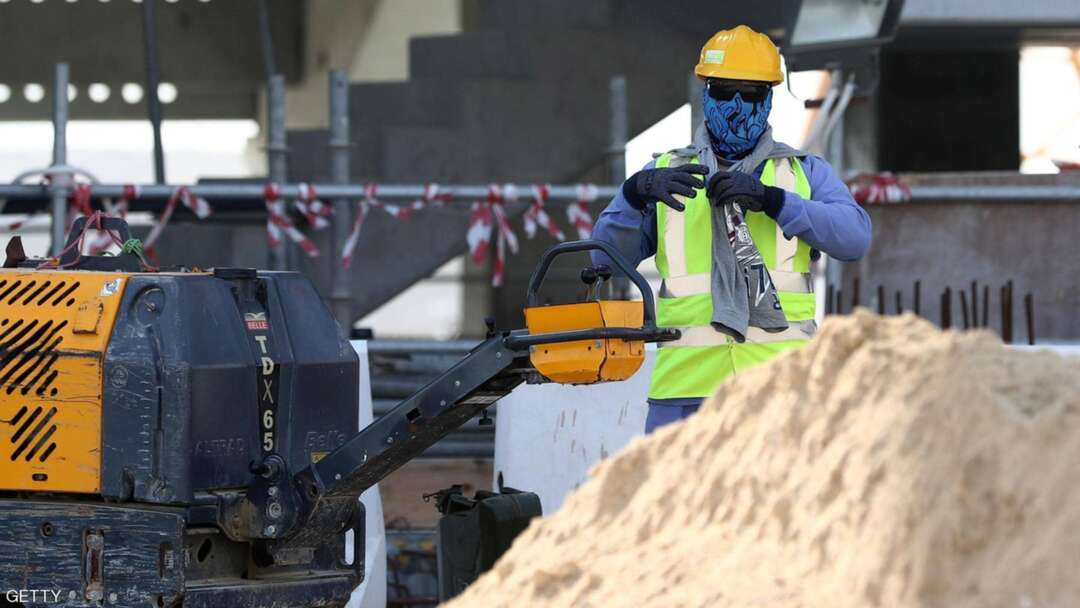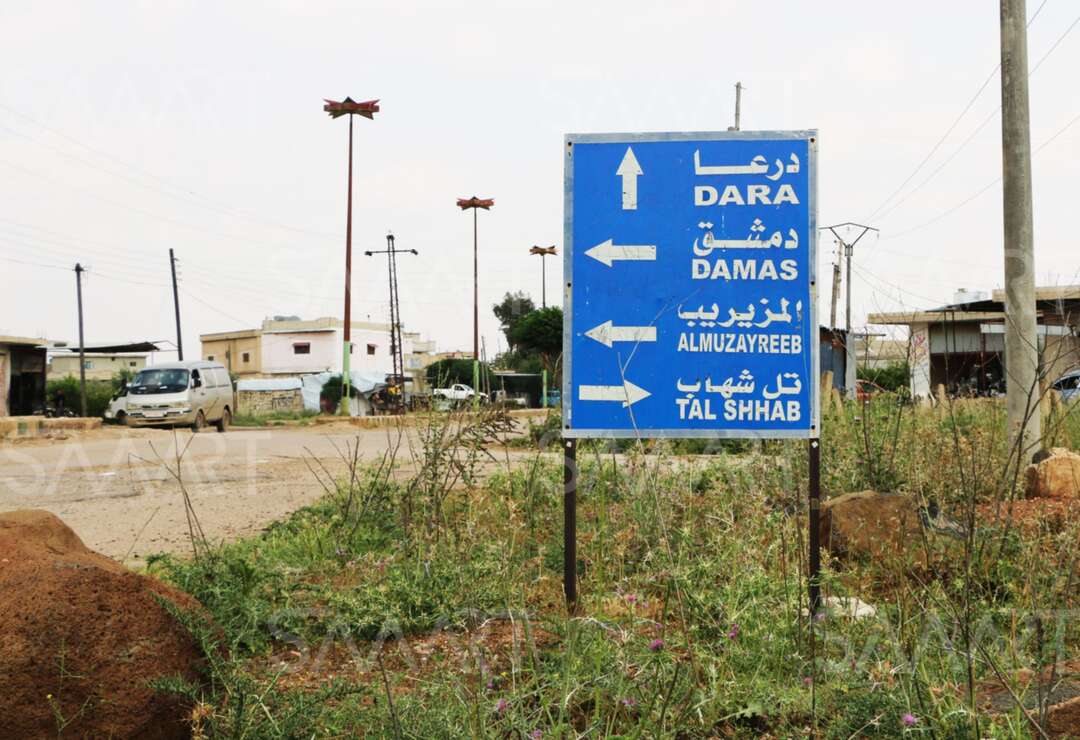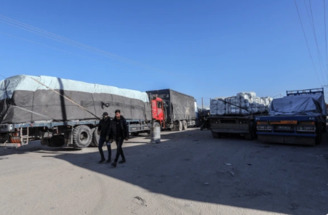-
Victims of Qatar’s Fifa World Cup.. Thousands of migrant labourers face death "in the streets"

A Guardian investigation has revealed recently That thousands of migrant workers in Qatar are at risk of death as a result of working in high searing temperatures, constructing the 2022 Fifa World Cup facilities as per Qatar’s plans.
Hundreds of thousands of migrant workers toiled in temperatures of up to 45 C for up to 10 hours a day as Qatar’s construction boom hit its peak ahead of the Fifa World Cup 2022.
The Qatari authorities have said they are protecting workers from heat-related injuries through a work ban that prohibits manual labour in unshaded outdoor areas between 11.30 and 3 pm from mid-June to August.
However, a Guardian analysis of official weather data over a nine-year period showed that the working ban does not keep workers safe.
In the hours outside the work ban, anyone working outdoors is still being exposed to potentially fatal levels of heat stress between June and September, which cardiologists say is leading to high numbers of fatalities every year.
The analysis also found dangerous levels of heat exposure continues into the cooler months.
Doha is currently hosting the World Athletics Championships, which exposes athletes to extreme heat and humidity.
Yet away from the sporting competition, workers remain at risk of serious harm from heat stress between 9 am and 12 noon throughout October.
A recent research has shown that working in high temperatures puts a huge strain on the human cardiovascular system; extreme heat stress leading to fatal heart attacks and other cardiovascular fatalities.
Hundreds of deaths per year
Every year hundreds of workers - many young men between 25 and 35 - die while working in Qatar. The majority of these deaths are attributed to cardiovascular causes or what the Qatari authorities describe as "natural death."
Yet recent research published in the Cardiology Journal by a group of leading climatologists and cardiologists concluded that the deaths were likely to be caused by heatstroke, exploring the correlation between the deaths of 1,300 Nepali workers between 2009 and 2017 and rising temperatures.
The research found that in the cooler months about 22 percent of yearly deaths were attributed to heart attacks, cardiac arrest or other cardio-related causes according to Qatari authorities. In the summer months this spiked to 58 percent.
"From our research, it was clear that workers are being recruited in their home countries on the basis of their health and fitness to survive weather conditions in the Gulf area," Dr Dan Attar, a professor of cardiology and head of research at Oslo University Hospital, told The Guardian.
“Young men have a very low incidence of heart attacks yet hundreds of them are dying every year in Qatar due to cardiovascular causes.”
Dr Attar commented, "The clear conclusion that I draw from this as a cardiologist is that these deaths are caused by deadly heatstroke. Their bodies cannot endure the heat stress they are being exposed to."
According to the research, as many as 200 of the 571 young men who died of cardiovascular causes between 2009 and 2017 could have been saved if effective heat protection measures had been implemented as part of occupational health and safety programmes.
'Fatal' construction boom
Qatar’s construction boom ahead of the 2022 Fifa World Cup has seen the country’s migrant worker population rise to 1.9 million. Many of them are young men from Nepal, India, Bangladesh and Pakistan who travel to Qatar to build the stadiums, roads and hotels that will service the tournament.
As per worker fatalities linked to Fifa World Cup stadiums recorded by Qatar’s Supreme Committee, the body responsible for workers’ health and safety last year, nine of the eleven were attributed to sudden heart attacks or respiratory failure.
"With the World Cup only two years away, the high number of deaths of young men from cardiac arrest in Qatar must be urgently investigated," said Nick McGeehan, director of Fair Square projects that has conducted research on heat stress and migrant workers rights.
"For years, human rights campaigners have been raising the impact of heat stress on workers fatalities and yet the deaths continue."
In Doha, a sign outside a construction site warned workers to how to "beat the heat" and another saying "Quench your thirst - safety first", but a Kenyan labourer dressed in sweat-stained pale blue overalls said there was no clean drinking water on the site.
"When it's hot, it's too tough. I'm not used to this climate. I never liked it since I came here. You feel so much stress."
In an interview with The Guardian in August, migrant workers said they suffered from a range of heat-related conditions, including skin allergies, headaches, altered vision, light headedness and difficulty breathing.
"In one minute I’m soaked in sweat," said one Nepali construction worker.
The Guardian used weather data from 2008 to 2017 to calculate wet-bulb globe temperature (WBGT) for Qatar— an internationally used measure that uses wind speeds, solar radiation, humidity and air temperature to assess the impact of heat stress on the human body.
WGBT reading of 28 ° C and above is internationally recognized as the point at which the human body is dangerously affected by heat stress.
You May Also Like
Popular Posts
Caricature
BENEFIT AGM approves 10%...
- March 27, 2025
BENEFIT, the Kingdom’s innovator and leading company in Fintech and electronic financial transactions service, held its Annual General Meeting (AGM) at the company’s headquarters in the Seef District.
During the meeting, shareholders approved all items listed on the agenda, including the ratification of the minutes of the previous AGM held on 26 March 2024. The session reviewed and approved the Board’s Annual Report on the company’s activities and financial performance for the fiscal year ended 31 December 2024, and the shareholders expressed their satisfaction with the company’s operational and financial results during the reporting period.
The meeting also reviewed the Independent External Auditor’s Report on the company’s consolidated financial statements for the year ended 31 December 2024. Subsequently, the shareholders approved the audited financial statements for the fiscal year. Based on the Board’s recommendation, the shareholders approved the distribution of a cash dividend equivalent to 10% of the paid-up share capital.
Furthermore, the shareholders endorsed the allocation of a total amount of BD 172,500 as remuneration to the members of the Board for the year ended 31 December 2024, subject to prior clearance by related authorities.
The extension of the current composition of the Board was approved, which includes ten members and one CBB observer, for a further six-month term, expiring in September 2025, pending no objection from the CBB.
The meeting reviewed and approved the Corporate Governance Report for 2024, which affirmed the company’s full compliance with the corporate governance directives issued by the CBB and other applicable regulatory frameworks. The AGM absolved the Board Members of liability for any of their actions during the year ending on 31st December 2024, in accordance with the Commercial Companies Law.
In alignment with regulatory requirements, the session approved the reappointment of Ernst & Young (EY) as the company’s External Auditors for the fiscal year 2025, covering both the parent company and its subsidiaries—Sinnad and Bahrain FinTech Bay. The Board was authorised to determine the external auditors’ professional fees, subject to approval from the CBB, and the meeting concluded with a discussion of any additional issues as per Article (207) of the Commercial Companies Law.
Speaking on the company’s performance, Mr. Mohamed Al Bastaki, Chairman BENEFIT , stated: “In terms of the financial results for 2024, I am pleased to say that the year gone by has also been proved to be a success in delivering tangible results. Growth rate for 2024 was 19 per cent. Revenue for the year was BD 17 M (US$ 45.3 Million) and net profit was 2 Million ($ 5.3 Million).
Mr. Al Bastaki also announced that the Board had formally adopted a new three-year strategic roadmap to commence in 2025. The strategy encompasses a phased international expansion, optimisation of internal operations, enhanced revenue diversification, long-term sustainability initiatives, and the advancement of innovation and digital transformation initiatives across all service lines.
“I extend my sincere appreciation to the CBB for its continued support of BENEFIT and its pivotal role in fostering a stable and progressive regulatory environment for the Kingdom’s banking and financial sector—an environment that has significantly reinforced Bahrain’s standing as a leading financial hub in the region,” said Mr. Al Bastaki. “I would also like to thank our partner banks and valued customers for their trust, and our shareholders for their ongoing encouragement. The achievements of 2024 set a strong precedent, and I am confident they will serve as a foundation for yet another successful and impactful year ahead.”
Chief Executive of BENEFIT; Mr. Abdulwahed AlJanahi commented, “The year 2024 represented another pivotal chapter in BENEFIT ’s evolution. We achieved substantial progress in advancing our digital strategy across multiple sectors, while reinforcing our long-term commitment to the development of Bahrain’s financial services and payments landscape. Throughout the year, we remained firmly aligned with our objective of delivering measurable value to our shareholders, strategic partners, and customers. At the same time, we continued to play an active role in enabling Bahrain’s digital economy by introducing innovative solutions and service enhancements that directly address market needs and future opportunities.”
Mr. AlJanahi affirmed that BENEFIT has successfully developed a robust and well-integrated payment network that connects individuals and businesses across Bahrain, accelerating the adoption of emerging technologies in the banking and financial services sector and reinforcing Bahrain’s position as a growing fintech hub, and added, “Our achievements of the past year reflect a long-term vision to establish a resilient electronic payment infrastructure that supports the Kingdom’s digital economy. Key developments in 2024 included the implementation of central authentication for open banking via BENEFIT Pay”
Mr. AlJanahi concluded by thanking the Board for its strategic direction, the company’s staff for their continued dedication, and the Central Bank of Bahrain, member banks, and shareholders for their valuable partnership and confidence in the company’s long-term vision.
opinion
Report
ads
Newsletter
Subscribe to our mailing list to get the new updates!





















